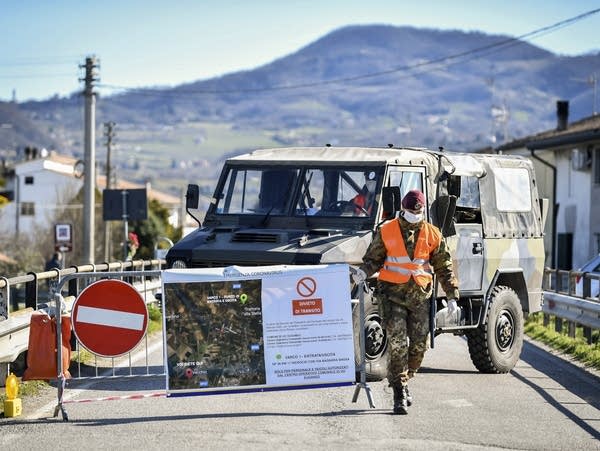Coronavirus spreads to more than 60 countries; number of cases surges in Italy

An Italian soldier blocks off a road leading to the village of Vo'Euganeo, in Italy's northern Veneto region, on Friday. Vo'Euganeo is the epicenter of the Veneto cluster of the new coronavirus.
Claudio Furlan | AP
Go Deeper.
Create an account or log in to save stories.
Like this?
Thanks for liking this story! We have added it to a list of your favorite stories.


